

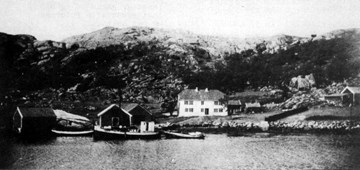
In order to survive on the rugged islands in the west, the people had to harvest from the sea as well as from the land. The money came more easily from the fisheries, on the other hand, they failed more often.
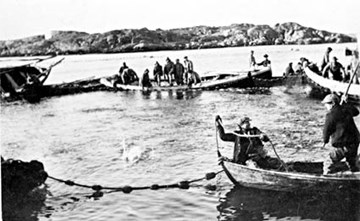
A rusty bolt in a bay can be the only visible memory of shore seine fishing, from times when the sheer momentum of the herring shoal coming from the west forced it into narrow necks of water, and boats rotated in the whirlpool.
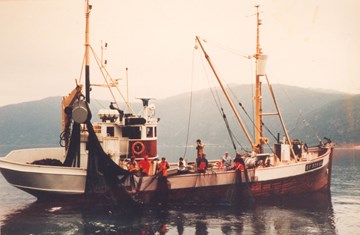
In the course of the 1950s, tuna fishing became big fisheries, which in the summer season employed a great many fishermen and vessels from Solund. The profit varied, but youthful enthusiasm pervaded ship-owners as well as crews, until this fish withdrew from the Norwegian coast.
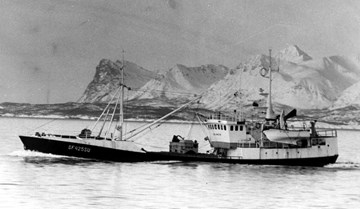
The seine-drying facility at Færøy is enormous. Yet it is only one part of the fishing industry which grew up and expanded in this place in the course of 2-3 generations.
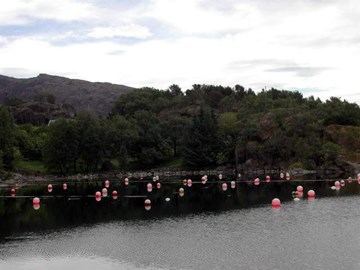
The rugged Solund coastline has a wealth of small, round fjords with narrow outlets, called "polls", bays, and coves which are well suited for the cultivation of oysters. From time immemorial, the oyster grew naturally in the "oyster puddles", but due to excess harvesting, oysters were on the brink of extinction, and this gave cultivation work a push.
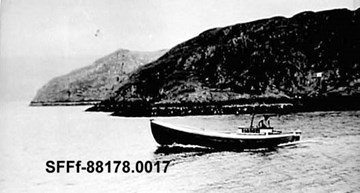
In early evening in the summer, a fleet of motor boats from western Solund headed west. Their destination was the numerous fishing grounds far out, where the young coalfish swam in huge shoals and took the bait willingly. The tools used were bamboo rods and home-made bait. This fishing method was called "påting".